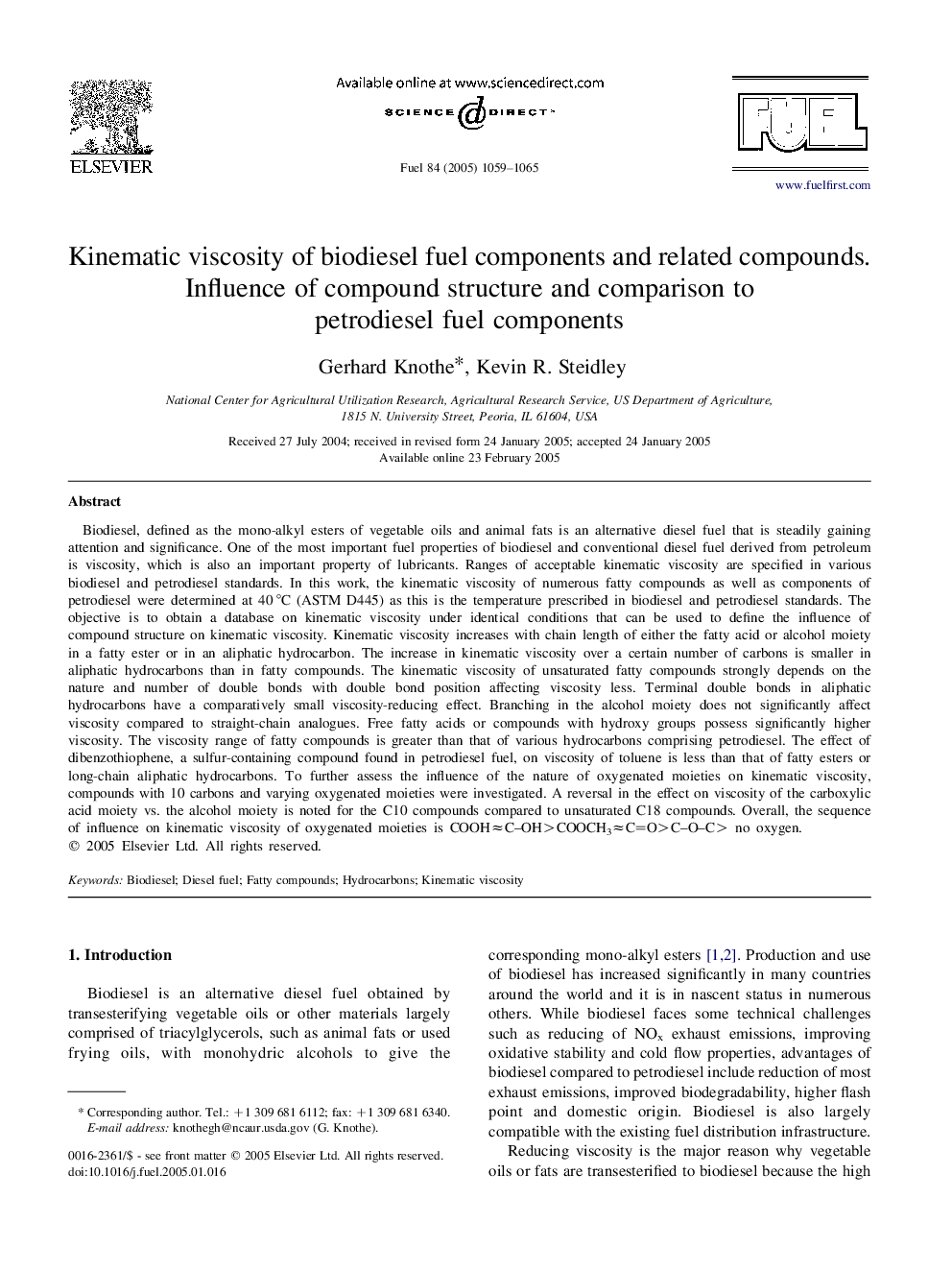| کد مقاله | کد نشریه | سال انتشار | مقاله انگلیسی | نسخه تمام متن |
|---|---|---|---|---|
| 10273615 | 461284 | 2005 | 7 صفحه PDF | دانلود رایگان |
عنوان انگلیسی مقاله ISI
Kinematic viscosity of biodiesel fuel components and related compounds. Influence of compound structure and comparison to petrodiesel fuel components
دانلود مقاله + سفارش ترجمه
دانلود مقاله ISI انگلیسی
رایگان برای ایرانیان
کلمات کلیدی
موضوعات مرتبط
مهندسی و علوم پایه
مهندسی شیمی
مهندسی شیمی (عمومی)
پیش نمایش صفحه اول مقاله

چکیده انگلیسی
Biodiesel, defined as the mono-alkyl esters of vegetable oils and animal fats is an alternative diesel fuel that is steadily gaining attention and significance. One of the most important fuel properties of biodiesel and conventional diesel fuel derived from petroleum is viscosity, which is also an important property of lubricants. Ranges of acceptable kinematic viscosity are specified in various biodiesel and petrodiesel standards. In this work, the kinematic viscosity of numerous fatty compounds as well as components of petrodiesel were determined at 40 °C (ASTM D445) as this is the temperature prescribed in biodiesel and petrodiesel standards. The objective is to obtain a database on kinematic viscosity under identical conditions that can be used to define the influence of compound structure on kinematic viscosity. Kinematic viscosity increases with chain length of either the fatty acid or alcohol moiety in a fatty ester or in an aliphatic hydrocarbon. The increase in kinematic viscosity over a certain number of carbons is smaller in aliphatic hydrocarbons than in fatty compounds. The kinematic viscosity of unsaturated fatty compounds strongly depends on the nature and number of double bonds with double bond position affecting viscosity less. Terminal double bonds in aliphatic hydrocarbons have a comparatively small viscosity-reducing effect. Branching in the alcohol moiety does not significantly affect viscosity compared to straight-chain analogues. Free fatty acids or compounds with hydroxy groups possess significantly higher viscosity. The viscosity range of fatty compounds is greater than that of various hydrocarbons comprising petrodiesel. The effect of dibenzothiophene, a sulfur-containing compound found in petrodiesel fuel, on viscosity of toluene is less than that of fatty esters or long-chain aliphatic hydrocarbons. To further assess the influence of the nature of oxygenated moieties on kinematic viscosity, compounds with 10 carbons and varying oxygenated moieties were investigated. A reversal in the effect on viscosity of the carboxylic acid moiety vs. the alcohol moiety is noted for the C10 compounds compared to unsaturated C18 compounds. Overall, the sequence of influence on kinematic viscosity of oxygenated moieties is COOHâC-OH>COOCH3âCO>C-O-C> no oxygen.
ناشر
Database: Elsevier - ScienceDirect (ساینس دایرکت)
Journal: Fuel - Volume 84, Issue 9, June 2005, Pages 1059-1065
Journal: Fuel - Volume 84, Issue 9, June 2005, Pages 1059-1065
نویسندگان
Gerhard Knothe, Kevin R. Steidley,